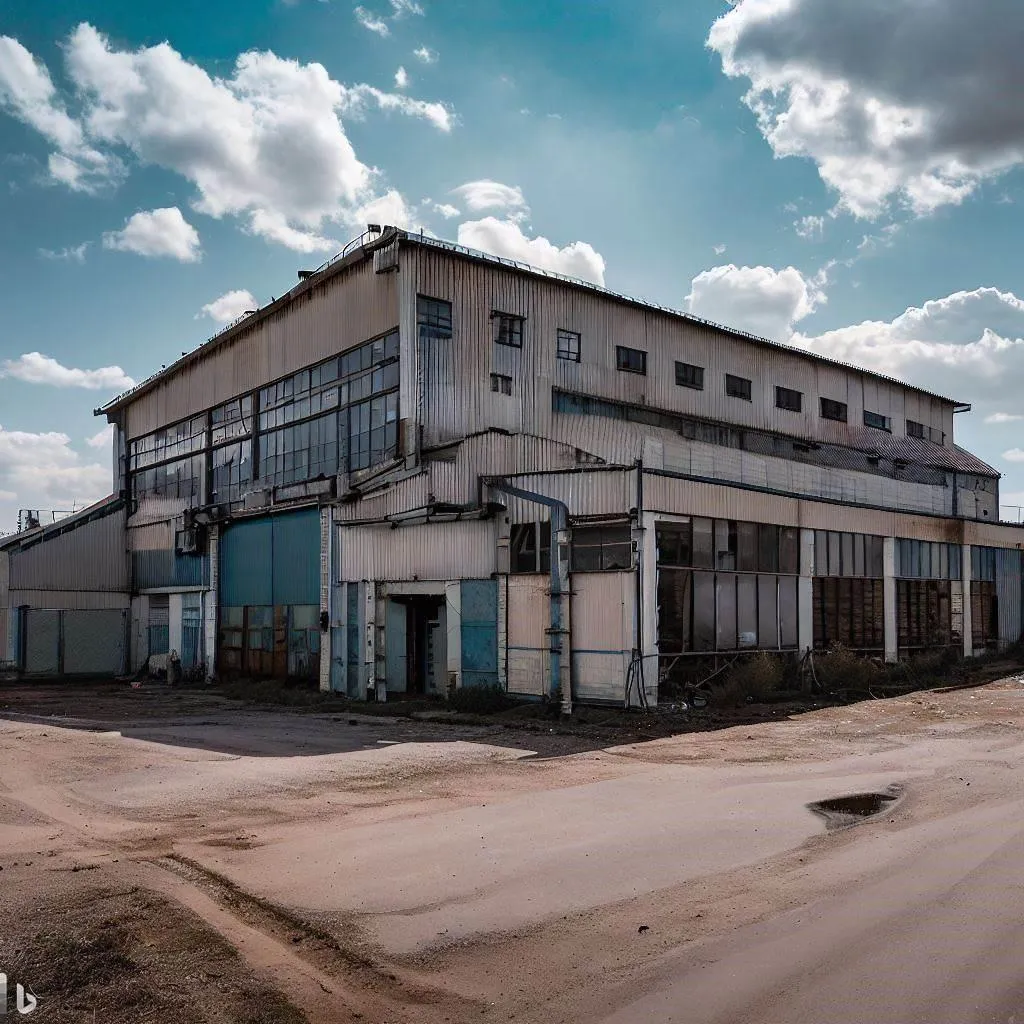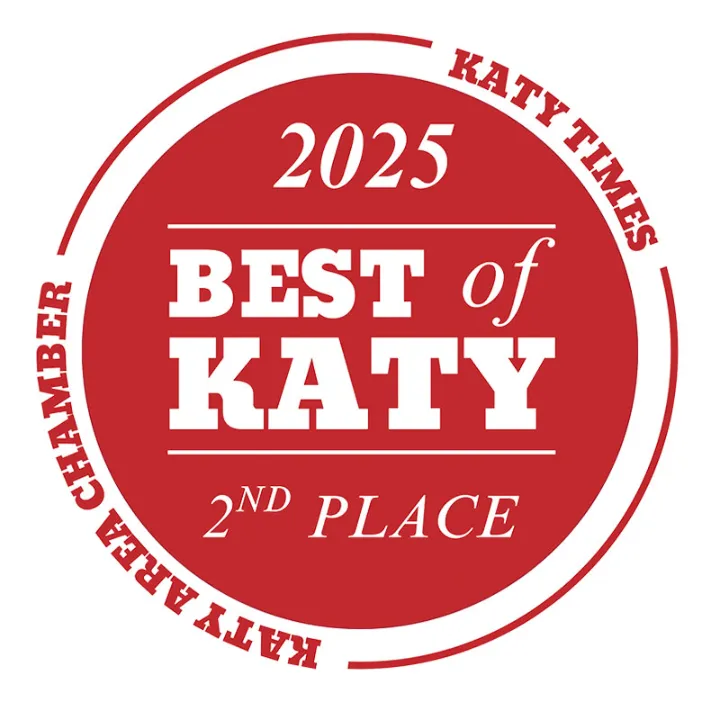Your Trusted Houston Commercial Real Estate Brokerage
Viking Enterprise LLC is part of eXp Commercial, an agent-led, cloud-based commercial real estate brokerage with agents across the globe.
Email: [email protected]
Call: (281) 222-0433
Your Trusted Katy / Fulshear & Houston Commercial Real Estate Brokerage
Viking Enterprise LLC is part of eXp Commercial, an agent-led, cloud-based commercial real estate brokerage with agents across the globe.
Looking to invest, buy, sell or lease? We can help.
Looking to invest, buy, sell or lease? We can help.
FEATURED PROPERTIES




OUR FEATURED TENANTS & CLIENTS
eXp Commercial - Viking Enterprise Team's real estate network provides unparalleled commercial real estate services to Tenants and Landlords around the Katy- Houston area. Our knowledge, experience, and reputation sets us apart from many firms.
A commercial property owner might have various plans that would necessitate the services of a commercial real estate broker. Some of the common scenarios include:
1. Selling the Property: If the owner decides it’s time to sell the property, a commercial real estate broker can help determine the market value, market the property effectively, and negotiate with potential buyers to get the best possible price.
2. Leasing Space: For property owners looking to lease out part or all of their commercial space, a broker can help find suitable tenants, negotiate lease terms, and ensure the lease agreements meet all legal requirements and serve the owner’s best interests.
3. Acquiring More Properties: Owners looking to expand their portfolio would benefit from a broker's knowledge of the market, access to listings, and negotiation skills to secure additional properties at favorable terms.
4. Property Management: While not all brokers offer this service, some commercial real estate brokers or their affiliates offer property management services. This can be particularly appealing for owners who prefer a hands-off approach or are managing properties from a distance.
5. Market Analysis: Owners considering future developments, renovations, or rebranding of their property might engage a broker for a comprehensive market analysis. This helps in understanding current market trends, the demand for different types of spaces, and potential returns on investment for various strategies.
6. Refinancing: In situations where a property owner is looking to refinance their property, a commercial real estate broker can provide valuable insights into the property’s current market value, assist in gathering necessary documentation, and even help in finding the best financing options.
7. Partnership or Investment Opportunities: Owners interested in exploring partnerships, joint ventures, or seeking investors for expansion or development projects might use a broker to find and vet potential partners or investors.
8. Consulting on Zoning and Use Changes: When contemplating a change in the use of the property or dealing with zoning issues, a broker with experience in local regulations and the specific property type can provide guidance and strategic planning assistance.
9. Exit Strategy Planning: For owners looking to plan an exit strategy from their investment, whether it’s through a strategic sale or a gradual winding down of operations, brokers can provide market insights, timing advice, and valuation services to optimize the exit process.
In any of these scenarios, the expertise and services provided by a commercial real estate broker can save the property owner time and money, while also providing access to a wider network of potential buyers, tenants, and industry professionals. Give us a call today!
Reviews

🌍 What Is a Phase I ESA? A Developer’s Guide 🏗️
🌍 What Is a Phase I ESA? A Developer’s Guide 🏗️
📝 Phase I ESA: Why It's a Must for CRE Buyers 🌿
If you’re thinking about buying land for a development project, there’s a crucial step you can’t afford to skip—a Phase I Environmental Site Assessment (ESA). This due diligence process is all about identifying any potential environmental risks that could impact the value of the property or, worse, pose a threat to human health and the environment. 🌎
Let’s break down what a Phase I ESA involves and why it’s a must-do for anyone in the real estate game. 👇
What Exactly is a Phase I ESA? 🤔
A Phase I ESA is essentially a deep dive into the history and current condition of a property. It’s like a property detective, looking for any clues that might suggest environmental contamination. Following the ASTM E1527-13 standards, this assessment aims to check if previous or current uses of the property have affected the soil or groundwater—something no developer wants to discover after closing the deal!
The Key Parts of a Phase I ESA 📝
Here’s what goes into a typical Phase I ESA:
1. Site Visit 👀
Observation: A visit to the property to examine current and past conditions, as well as checking out the neighboring properties. Are there any signs of environmental trouble? Spills, strange odors, or old industrial equipment? All of it gets noted down!
2. Regulatory Database Review 📚
Databases: A deep dive into federal, state, tribal, and local databases. This is to search for records like underground or aboveground storage tanks, hazardous material storage, or any known cases of contamination.
3. Historical Records Review 🗂️
Documents: Historical aerial photographs, Sanborn fire insurance maps, old city directories, and topographic maps are all examined to understand how the land was used in the past. A gas station from 40 years ago could mean potential headaches today!
4. Agency Records Review 🏢
Local Records: Local environmental, building, fire, and health department records are reviewed to see if any red flags pop up.
5. Interviews 🗣️
Stakeholders: Current and past property owners, tenants, or anyone familiar with the property’s history are interviewed to get more context.
6. Report User Interviews 📄
User Input: The report user (often the buyer or lender) might also be interviewed about any specialized knowledge they have, including property restrictions, liens, or why the property might be selling at a lower price than expected.
What They’re Looking For: Environmental Risks 🚨
Once all the information is gathered, an Environmental Professional (EP) evaluates potential risks. Common culprits include properties that have housed dry cleaners, gas stations, auto repair shops, or manufacturing facilities—businesses that may have used hazardous materials. These are known as Recognized Environmental Conditions (RECs), and if they’re identified, you might need to take a closer look.
What About Non-ASTM Concerns? 🤷♂️
Here’s where it can get a little more complex. Although they’re not officially part of the ASTM standards, a Phase I ESA might also flag other potential hazards like asbestos, mold, lead-based paint, or radon. If any of these are a concern, additional testing can be requested.
Wrapping It Up: Conclusions & Recommendations 📊
At the end of the assessment, the Environmental Professional will summarize their findings and give recommendations. If they identify any RECs (areas of concern), you might need to proceed to a Phase II Environmental Site Assessment, which involves collecting soil, groundwater, and air samples for a more in-depth analysis. Think of Phase II as the follow-up visit to the doctor—just to be sure everything’s okay! 🧪
Why Developers Should Care 🤝
So, why is a Phase I ESA so important for developers, lenders, and property owners? Here’s what’s in it for you:
Liability Protection: It helps you spot any potential environmental issues before you sign the dotted line. This way, you’re not stuck footing the bill later for a hidden problem.
Risk Mitigation: Identifying risks early means fewer unexpected challenges down the road.
Regulatory Compliance: A Phase I ESA ensures you’re in the clear with environmental laws, which keeps you safe from any legal troubles. 🚫⚖️
Informed Decision-Making: You get all the data you need to make a smart decision on whether to proceed with the property purchase or walk away.
The Bottom Line 📈
A Phase I ESA is a vital tool that gives developers and property owners peace of mind, knowing they’ve done their due diligence. Whether you’re looking to build a new project or invest in a piece of land, understanding the environmental history can save you from future headaches and unexpected costs. 🌿
Next time you’re eyeing that prime piece of land, make sure a Phase I ESA is at the top of your checklist! ✅
I’m an experienced Commercial Real Estate Broker, please feel free to reach me at 281-222-0433.
#RealEstateDevelopment #PhaseIESA #EnvironmentalAssessment #CommercialRealEstate #DueDiligence #PropertyInvestment #DevelopmentTips #EnvironmentalProtection #CREInvesting
https://www.houstonrealestatebrokerage.com/
https://www.commercialexchange.com/agent/653bf5593e3a3e1dcec275a6
http://expressoffers.com/[email protected]
https://www.tenantbase.com/advisors/bill-rapp/
https://buildout.com/plugins/3e7ef61d54725c99fd76ca1f4ae24a348c56a0d4/brokers/[email protected]
www.linkedin.com/comm/mynetwork/discovery-see-all?usecase=PEOPLE_FOLLOWS&followMember=mortgageviking
https://www.fastexpert.com/agents/bill-rapp-95118/
https://www.homelight.com/agents/bill-rapp-tx-595622?preview=t
https://www.houstonrealestatebrokerage.com/houston-cre-navigator
https://www.smartbizloans.com/assist/partner/vikingenterprisellc/expcommercial
https://go.mypartner.io/referral-partner/?ref=001Qk00000JlNcfIAF
https://www.loopnet.ca/commercial-real-estate-brokers/profile/bill-rapp/pwp0fkrb
© 2023-2024 Bill Rapp, Broker Associate, eXp Commercial Viking Enterprise Team
eXp Commercial - Viking Enterprise team real estate network provides unparalleled commercial real estate services to Tenants and Landlords around the greater Katy & Houston MSA area. Our knowledge, experience, and reputation sets us apart from many firms.
A commercial property owner might have various plans that would necessitate the services of a commercial real estate broker. Some of the common scenarios include:
1. Selling the Property: If the owner decides it’s time to sell the property, a commercial real estate broker can help determine the market value, market the property effectively, and negotiate with potential buyers to get the best possible price.
2. Leasing Space: For property owners looking to lease out part or all of their commercial space, a broker can help find suitable tenants, negotiate lease terms, and ensure the lease agreements meet all legal requirements and serve the owner’s best interests.
3. Acquiring More Properties: Owners looking to expand their portfolio would benefit from a broker's knowledge of the market, access to listings, and negotiation skills to secure additional properties at favorable terms.
4. Property Management: While not all brokers offer this service, some commercial real estate brokers or their affiliates offer property management services. This can be particularly appealing for owners who prefer a hands-off approach or are managing properties from a distance.
5. Market Analysis: Owners considering future developments, renovations, or rebranding of their property might engage a broker for a comprehensive market analysis. This helps in understanding current market trends, the demand for different types of spaces, and potential returns on investment for various strategies.
6. Refinancing: In situations where a property owner is looking to refinance their property, a commercial real estate broker can provide valuable insights into the property’s current market value, assist in gathering necessary documentation, and even help in finding the best financing options.
7. Partnership or Investment Opportunities: Owners interested in exploring partnerships, joint ventures, or seeking investors for expansion or development projects might use a broker to find and vet potential partners or investors.
8. Consulting on Zoning and Use Changes: When contemplating a change in the use of the property or dealing with zoning issues, a broker with experience in local regulations and the specific property type can provide guidance and strategic planning assistance.
9. Exit Strategy Planning: For owners looking to plan an exit strategy from their investment, whether it’s through a strategic sale or a gradual winding down of operations, brokers can provide market insights, timing advice, and valuation services to optimize the exit process.
In any of these scenarios, the expertise and services provided by a commercial real estate broker can save the property owner time and money, while also providing access to a wider network of potential buyers, tenants, and industry professionals. Give us a call today!

Find the perfect location for your business.
Let us help your business succeed.

🌍 What Is a Phase I ESA? A Developer’s Guide 🏗️
🌍 What Is a Phase I ESA? A Developer’s Guide 🏗️
📝 Phase I ESA: Why It's a Must for CRE Buyers 🌿
If you’re thinking about buying land for a development project, there’s a crucial step you can’t afford to skip—a Phase I Environmental Site Assessment (ESA). This due diligence process is all about identifying any potential environmental risks that could impact the value of the property or, worse, pose a threat to human health and the environment. 🌎
Let’s break down what a Phase I ESA involves and why it’s a must-do for anyone in the real estate game. 👇
What Exactly is a Phase I ESA? 🤔
A Phase I ESA is essentially a deep dive into the history and current condition of a property. It’s like a property detective, looking for any clues that might suggest environmental contamination. Following the ASTM E1527-13 standards, this assessment aims to check if previous or current uses of the property have affected the soil or groundwater—something no developer wants to discover after closing the deal!
The Key Parts of a Phase I ESA 📝
Here’s what goes into a typical Phase I ESA:
1. Site Visit 👀
Observation: A visit to the property to examine current and past conditions, as well as checking out the neighboring properties. Are there any signs of environmental trouble? Spills, strange odors, or old industrial equipment? All of it gets noted down!
2. Regulatory Database Review 📚
Databases: A deep dive into federal, state, tribal, and local databases. This is to search for records like underground or aboveground storage tanks, hazardous material storage, or any known cases of contamination.
3. Historical Records Review 🗂️
Documents: Historical aerial photographs, Sanborn fire insurance maps, old city directories, and topographic maps are all examined to understand how the land was used in the past. A gas station from 40 years ago could mean potential headaches today!
4. Agency Records Review 🏢
Local Records: Local environmental, building, fire, and health department records are reviewed to see if any red flags pop up.
5. Interviews 🗣️
Stakeholders: Current and past property owners, tenants, or anyone familiar with the property’s history are interviewed to get more context.
6. Report User Interviews 📄
User Input: The report user (often the buyer or lender) might also be interviewed about any specialized knowledge they have, including property restrictions, liens, or why the property might be selling at a lower price than expected.
What They’re Looking For: Environmental Risks 🚨
Once all the information is gathered, an Environmental Professional (EP) evaluates potential risks. Common culprits include properties that have housed dry cleaners, gas stations, auto repair shops, or manufacturing facilities—businesses that may have used hazardous materials. These are known as Recognized Environmental Conditions (RECs), and if they’re identified, you might need to take a closer look.
What About Non-ASTM Concerns? 🤷♂️
Here’s where it can get a little more complex. Although they’re not officially part of the ASTM standards, a Phase I ESA might also flag other potential hazards like asbestos, mold, lead-based paint, or radon. If any of these are a concern, additional testing can be requested.
Wrapping It Up: Conclusions & Recommendations 📊
At the end of the assessment, the Environmental Professional will summarize their findings and give recommendations. If they identify any RECs (areas of concern), you might need to proceed to a Phase II Environmental Site Assessment, which involves collecting soil, groundwater, and air samples for a more in-depth analysis. Think of Phase II as the follow-up visit to the doctor—just to be sure everything’s okay! 🧪
Why Developers Should Care 🤝
So, why is a Phase I ESA so important for developers, lenders, and property owners? Here’s what’s in it for you:
Liability Protection: It helps you spot any potential environmental issues before you sign the dotted line. This way, you’re not stuck footing the bill later for a hidden problem.
Risk Mitigation: Identifying risks early means fewer unexpected challenges down the road.
Regulatory Compliance: A Phase I ESA ensures you’re in the clear with environmental laws, which keeps you safe from any legal troubles. 🚫⚖️
Informed Decision-Making: You get all the data you need to make a smart decision on whether to proceed with the property purchase or walk away.
The Bottom Line 📈
A Phase I ESA is a vital tool that gives developers and property owners peace of mind, knowing they’ve done their due diligence. Whether you’re looking to build a new project or invest in a piece of land, understanding the environmental history can save you from future headaches and unexpected costs. 🌿
Next time you’re eyeing that prime piece of land, make sure a Phase I ESA is at the top of your checklist! ✅
I’m an experienced Commercial Real Estate Broker, please feel free to reach me at 281-222-0433.
#RealEstateDevelopment #PhaseIESA #EnvironmentalAssessment #CommercialRealEstate #DueDiligence #PropertyInvestment #DevelopmentTips #EnvironmentalProtection #CREInvesting
https://www.houstonrealestatebrokerage.com/
https://www.commercialexchange.com/agent/653bf5593e3a3e1dcec275a6
http://expressoffers.com/[email protected]
https://www.tenantbase.com/advisors/bill-rapp/
https://buildout.com/plugins/3e7ef61d54725c99fd76ca1f4ae24a348c56a0d4/brokers/[email protected]
www.linkedin.com/comm/mynetwork/discovery-see-all?usecase=PEOPLE_FOLLOWS&followMember=mortgageviking
https://www.fastexpert.com/agents/bill-rapp-95118/
https://www.homelight.com/agents/bill-rapp-tx-595622?preview=t
https://www.houstonrealestatebrokerage.com/houston-cre-navigator
https://www.smartbizloans.com/assist/partner/vikingenterprisellc/expcommercial
https://go.mypartner.io/referral-partner/?ref=001Qk00000JlNcfIAF
https://www.loopnet.ca/commercial-real-estate-brokers/profile/bill-rapp/pwp0fkrb
© 2023-2024 Bill Rapp, Broker Associate, eXp Commercial Viking Enterprise Team
Find the perfect location for your business.
Let us help your business succeed.
9600 Great Hills Trail, Suite 150w Austin, TX 78759 |
855.450.0324 xx255
Texas Real Estate Commission Consumer Protection Notice Texas Real Estate Commission
Information About Brokerage Services eXp Commercial LLC #9010212
Viking Enterprise LLC #9009614

Sign up to receive the latest news on property investment and commercial real estate listings.
Contact Us
901 S Mopac Expwy, Bldg 2, Suite 350 Austin, TX 78746 | 512.474.5557Texas Real Estate Commission
Consumer Protection Notice Texas Real Estate Commission Information About Brokerage Services Reliance Retail, LLC #603091
Texas RS, LLC #9003193 | RESOLUT RE Is Licensed In Louisiana #0995694083


Facebook
Instagram
X
LinkedIn
Youtube
TikTok